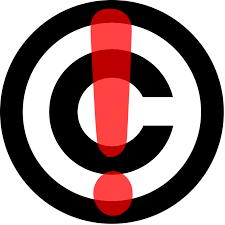 Do I need permission to use another creator’s photos, video clips, still art or music in my film?
Do I need permission to use another creator’s photos, video clips, still art or music in my film?
Depends. Every creator has a right to exclusively own their work. This right, known as a copyright, prevents others from copying, performing or publicly displaying the work for profit without permission.
The doctrine of fair use promotes the freedom to express and exchange ideas by allowing the use of copyrighted works under certain conditions.
To ensure your film meets the ‘fair use’ test, ask yourself:
- Am I using this creator’s work for commercial profit?
The YFEP Film contest is a not-for-profit educational project. Films created for the contest are free for distribution and not for commercial use.
- What is the nature of the copyrighted work I am using?
News reporting, research findings, critiques and scholarly works are more acceptable under the fair use doctrine than artistic content.
- How much of the copyrighted work am I using? What percentage of my film is comprised of copyrighted works?
Remember that YFEP film submissions should be no more than 4 mins long. Try not to use more than 30 seconds of copyrighted material in your creating your original film.
- What impact will my use of the copyrighted work have on its value?
In other words, will your use of the material make it harder for the original creator to make a profit from their work or diminish its value in any way?
Since YFEP films are not for sale, it’s highly unlikely that they will diminish the value of any copyrighted material featured in them. However, if you plan to submit your film to film festivals or larger platforms for profit, it’s more likely that using another creator’s work will fall outside of fair use.
More Tips For Trouble-Free Filmmaking:
- It’s always a good idea to credit the source of images, audio and other material at end of your film.
- Protect the copyright of your original film with a Creative Commons license. Read about the different types of licenses and how you can register here.
For more guidance on using copyrighted material, check out any of the following 5 resources:
- How to Acquire Music for Films
This comprehensive Q&A put out by the American Society of Composers, Authors and Publishers tackles a handful of issues surrounding copyright useful for student filmmakers.
This short set of pointers from Raindance can help you make sure the music within your film adheres to copyright regulations.
Another great primer on fair use from Stanford University.
This blog post gives a tight summary of the steps you’ll need to take to gain permission to use licensed music in your film. Spoiler: it can be tough!
Looking for music to include in your film that’s free and *almost* certainly won’t violate copyright laws? Check out Creative Commons’ list of sites offering just that.

